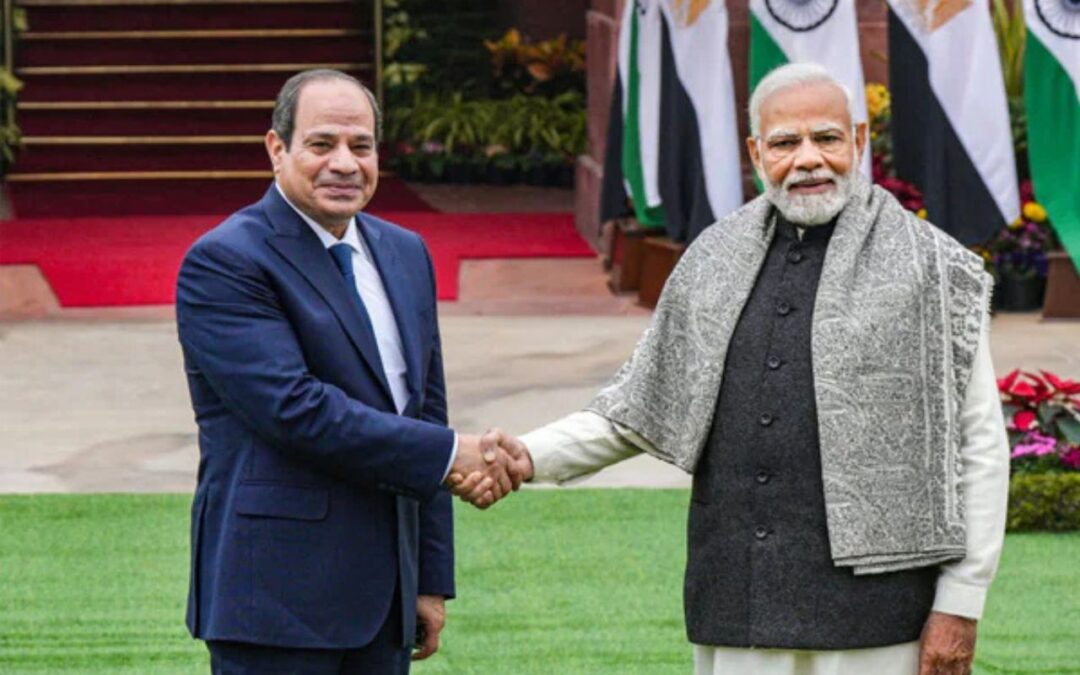The India-Egypt Bilateral Trade Agreement, in operation since 1978, is based on the Most Favoured Nation (MFN) principle. Over the years, the partnership has grown significantly, with bilateral trade exceeding $7 billion in recent years. Both nations actively seek to deepen economic ties, promote investments, and explore new avenues for collaboration, strengthening their longstanding trade relationship.
Expanding Trade Opportunities
Egypt’s Ambassador to India, Kamel Galal, highlighted the strong potential for bilateral trade to rise from $5 billion to $12 billion in the coming years. He emphasized that India’s manufacturing and services capabilities, combined with Egypt’s strategic location and resource base, create a powerful foundation for deeper economic cooperation.
Kamel Galal outlined new opportunities to boost India–Egypt trade, noting $500 million potential in software for port automation through the Suez Canal route. He highlighted a 30% rise in the gems trade and projected that proposed fashion hubs in the Suez region could add $800 million, alongside growth in the healthcare and textile sectors.
Moreover, the Ambassador noted that India’s $200 billion IT industry could play a key role in Egypt’s digital transformation, fostering technology collaboration. He also pointed to Egypt’s food inflation challenges as an opportunity for India to boost exports of value-added foods through agro-parks, potentially increasing agri-trade to $1 billion by 2026.
Further, he added that the country imported $300 million worth of Indian basmati rice, spices, and fruits in 2024, reflecting growing trade ties. He highlighted solar panel imports from India as a key focus as Egypt targets 42% renewable energy by 2030. With the Grand Egyptian Museum’s inauguration, Egypt also aims to boost global tourism and cultural engagement.
India–Egypt Trade Ties
In mid-October, Egyptian Foreign Minister Badr Abdelatty said Egypt seeks to attract greater Indian investments, particularly in digitalisation, artificial intelligence, and renewable energy. He emphasized Egypt’s interest in India’s enhanced participation at the Suez Canal Economic Zone (SCEZ), aiming to deepen bilateral cooperation and expand trade and industrial partnerships.
Additionally, Badr Abdelatty said bilateral trade between India and Egypt reached $5.2 billion in 2024–25, with Indian exports at $3.84 billion and imports at $1.3 billion. He noted both nations aim to double this figure, highlighting Egypt’s strategic location and trade access to African and Arab markets.
Conclusion
In conclusion, India and Egypt are strengthening their strategic and economic partnership, driven by shared interests in technology, renewable energy, manufacturing, and trade expansion. With a focus on the Suez Canal Economic Zone and digital collaboration, both nations aim to double trade volumes, enhance investment flows, and build a resilient, future-ready economic alliance benefiting both regions.
Written by Abhishek Singh
Disclaimer

The views and investment tips expressed by investment experts/broking houses/rating agencies on tradebrains.in are their own, and not that of the website or its management. Investing in equities poses a risk of financial losses. Investors must therefore exercise due caution while investing or trading in stocks. Trade Brains Technologies Private Limited or the author are not liable for any losses caused as a result of the decision based on this article. Please consult your investment advisor before investing.





